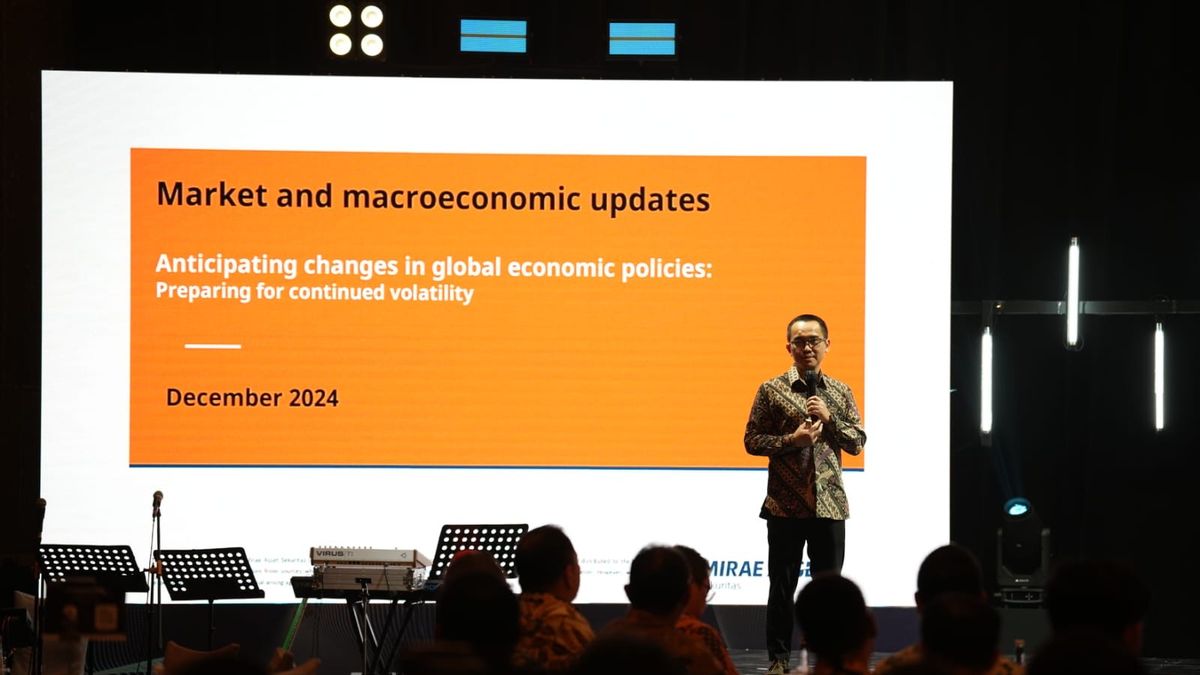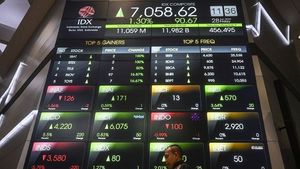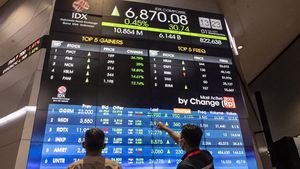JAKARTA - PT Mirae Asset Sekuritas Indonesia is optimistic that by 2025 the Composite Stock Price Index (JCI) will reach 8,000 amid the potential trade war next year.
Head of Research & Chief Economist Mirae Asset Rully Arya Wisnubroto said, this year the volatility of the Indonesian stock market is quite large with a record high of JCI 7,905.
"This position is close to Mirae Asset's prediction of 7,915 for 2024, before being corrected, which shows that market dynamics are still influenced by global and domestic sentiment," he said in his statement, Monday, December 9.
Rully conveyed that the positive predictions of the domestic capital market were mainly supported by the strong two domestic macroeconomic factors, namely stable inflation and maintained purchasing power.
He said, as long as there is no extreme weather disturbance that can affect food production, food prices will remain stable next year because Indonesia continues to show a decline in inflation.
He added, with the stable price of foodstuffs, the impact of the increase in value added tax (VAT) from 11 percent to 12 percent is estimated to be insignificant, especially because basic commodities are excluded from the increase in taxes.
This controlled inflation, Rully said, can affect purchasing power factors so that they are still maintained, especially in the food sector which will become the main pillar that supports people's purchasing power.
"We are optimistic that public spending (domestic spending) will be maintained and grow stable in the coming year," said Rully.
Rully menyampaikan dengan dukungan inflasi terkendali yang diprediksi sebesar 2,8 persen pada 2025 dan faktor daya beli yang kuat memperkirakan pertumbuhan ekonomi Indonesia tahun depan akan mencapai 5 persen dengan posisi suku acuan 5,5 persen pada akhir tahun depan.
According to him, taking into account these various macroeconomic factors, the Indonesian capital market still has positive prospects in 2025.
"A global condition full of challenges is expected to be faced with the right policies and synergies of all stakeholders," he explained.
Regarding interest rates, Rully predicts that the space for lowering the domestic benchmark interest rate (BI rate) will be more limited due to global macroeconomic conditions, especially the challenges of the new US government's economic policy.
SEE ALSO:
Rully predicts that US economic policy, which is more inward-inferred (inward-looping), has the potential to trigger a trade war with major trading partners, which could disrupt global trade activity.
"In addition, the policy is also expected to trigger inflation in the US and narrow the space for lowering the Federal Reserve (Federal Funds Rate/FFR) benchmark rate, which ultimately strengthens the US dollar exchange rate in the global market, which has an impact on the economy of developing countries including Indonesia," he said.
The English, Chinese, Japanese, Arabic, and French versions are automatically generated by the AI. So there may still be inaccuracies in translating, please always see Indonesian as our main language. (system supported by DigitalSiber.id)














